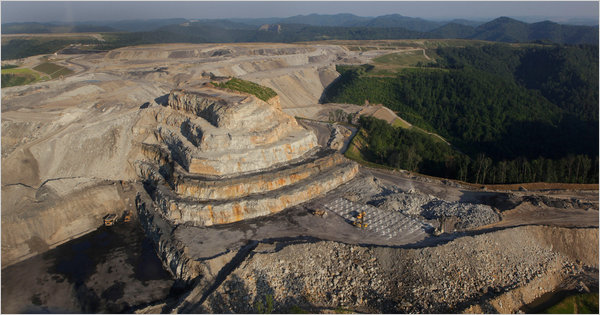Banks Grow Wary of Environmental Risks
By Tom Zeller, Jr. | Sep 24, 2010

Blasting off mountaintops to reach coal in Appalachia or churning out millions of tons of carbon dioxide to extract oil from sand in Alberta are among environmentalists’ biggest industrial irritants. But they are also legal and lucrative.
For a growing number of banks, however, that does not seem to matter.
After years of legal entanglements arising from environmental messes and increased scrutiny of banks that finance the dirtiest industries, several large commercial lenders are taking a stand on industry practices that they regard as risky to their reputations and bottom lines.
In the most recent example, the banking giant Wells Fargo noted last month what it called “considerable attention and controversy” surrounding mountaintop removal mining, and said that its involvement with companies engaged in it was “limited and declining.”
The bank was a small player in the sector, representing about $78 million in bonds and loan financing for such companies from 2008 to April of this year, according to data compiled by the Rainforest Action Network, an environmental group tracking the issue.
But the policy shift by Wells Fargo follows others over the last two years, including moves by Credit Suisse, Morgan Stanley, JPMorgan Chase, Bank of America and Citibank, to increase scrutiny of lending to companies involved in mountaintop removal — or to end the lending altogether.
HSBC, which is based in London, has curtailed its relationships with some producers of palm oil, which is often linked to deforestation in developing countries. The Dutch lender Rabobank has applied a nine-point checklist of conditions for would-be oil and gas borrowers that includes commitments to improve environmental performance and protect water quality.
In some cases, the changing policies represent an attempt to burnish green credentials in areas where the banks had little interest, and there is no indication that companies engaged in the objectionable practices cannot find financing elsewhere.
Read the rest here: http://www.nytimes.com/2010/08/31/business/energy-environment/31coal.html?th&emc=th















